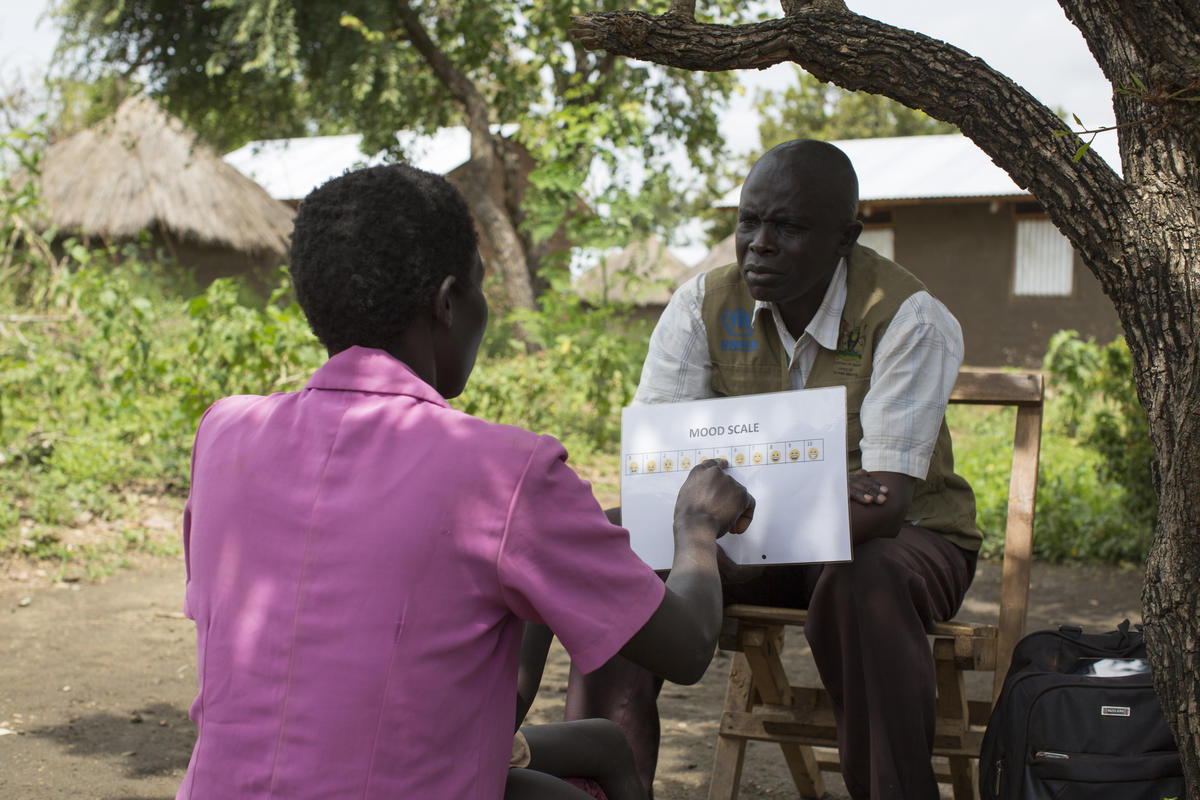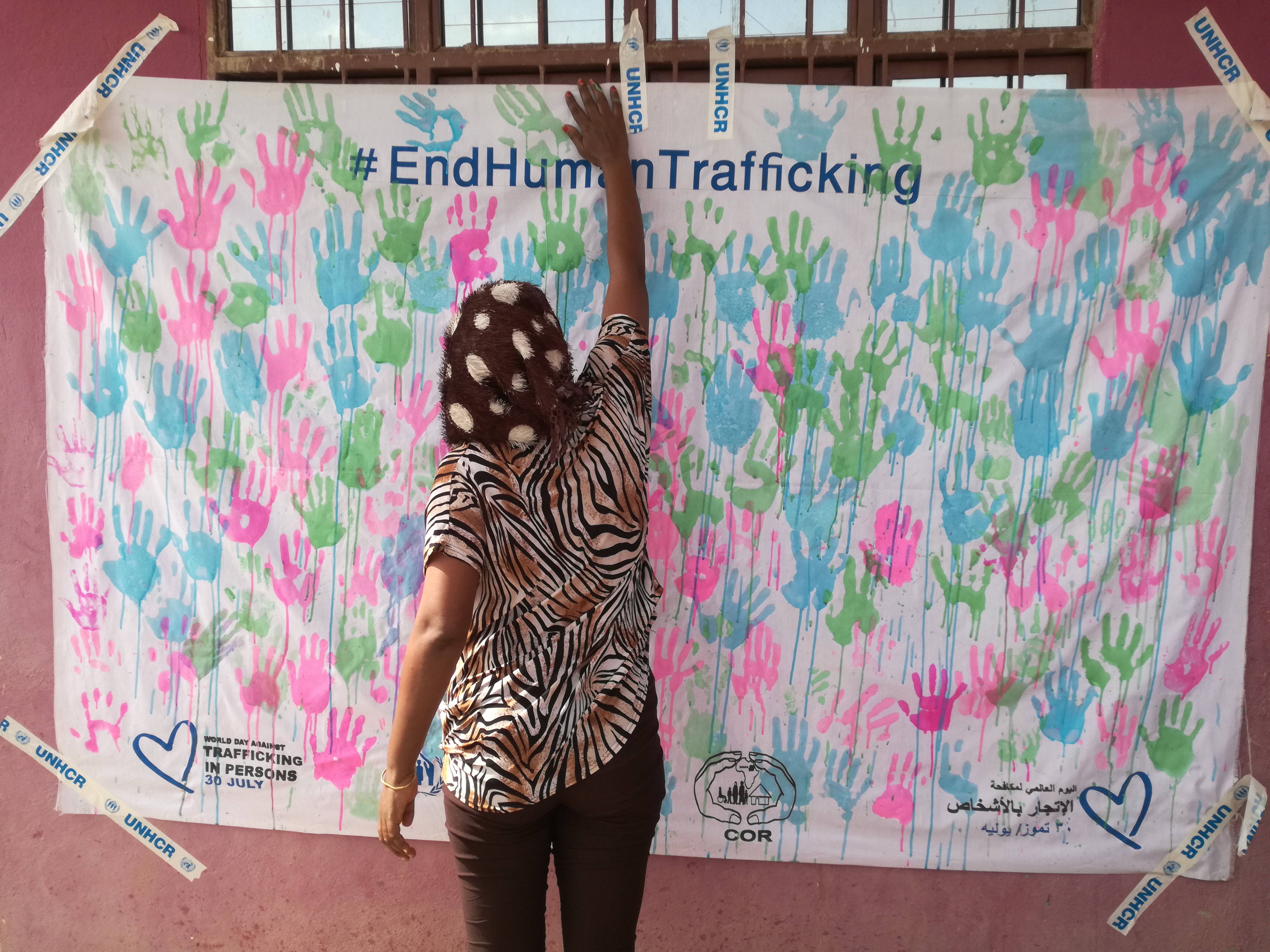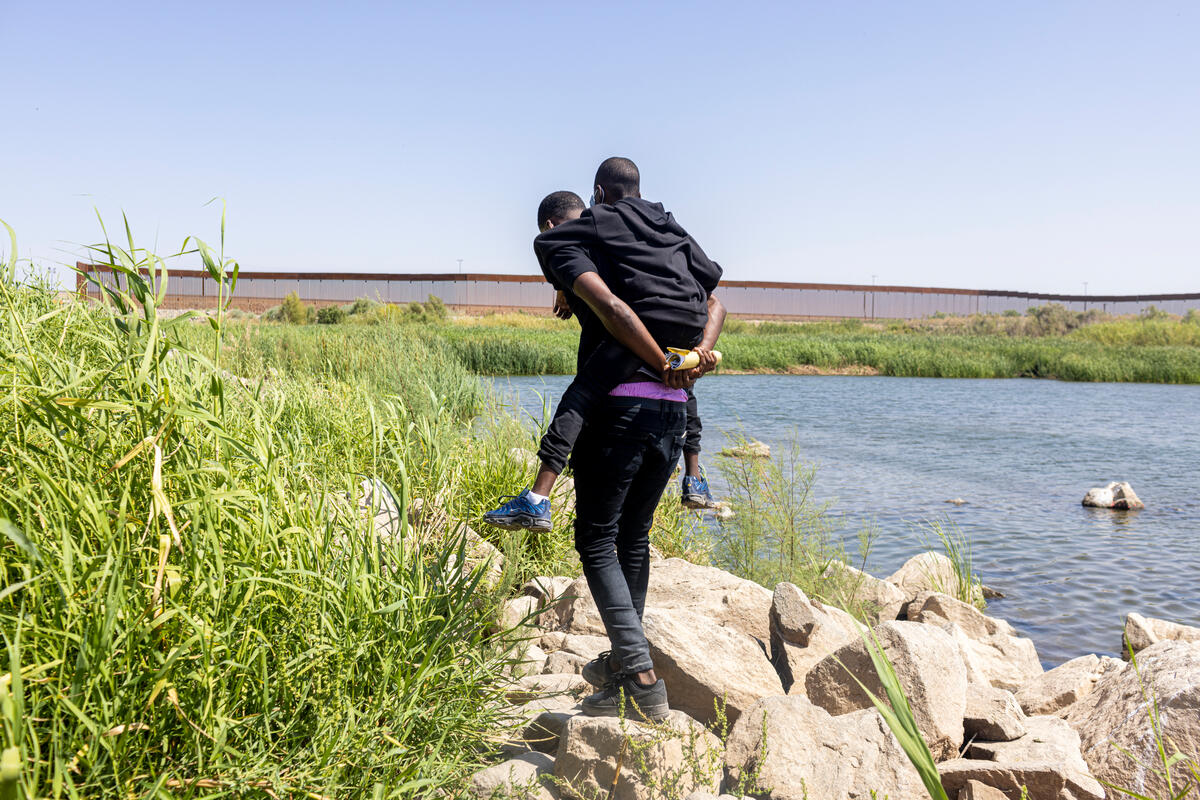UNHCR Executive Committee adopts ground-breaking protection conclusions
UNHCR Executive Committee adopts ground-breaking protection conclusions

GENEVA, Oct 3 (UNHCR) - The UN refugee agency's Executive Committee (ExCom) today adopted four conclusions on protection issues, including ground-breaking ones on the return of people not in need of international protection, on the protection of refugees from sexual abuse and exploitation, and on safeguards during the interception of refugees before they reach their intended destination.
"The negotiation process was particularly demanding, given the number of conclusions and the complex subject matters under discussion," said Erika Feller, UNHCR's Director of International Protection. Feller's department was responsible for coordinating the negotiations on the texts by the 64 states that make up ExCom. ExCom Conclusions, although not binding, have an important status as 'soft' international law, and are often cited in national asylum hearings and court cases, and during the drafting of national asylum legislation.
The Conclusion on Protection from Sexual Abuse and Exploitation was drawn up in an effort to address one of the most sordid threats facing refugees, especially women and children living in camps.
It includes an extensive range of measures to be enacted by states, UNHCR, NGOs and other partners who work with refugees around the globe, with a strong emphasis on preventive measures and systems, including training at all levels and implementation of guidelines and codes of conduct, as well as prompt investigation and accountability once abuses are found to have taken place. The conclusion also addresses such issues as the need to ensure that the camp management "is conducted in an equitable manner that empowers women, children and vulnerable groups and that the physical layout of camps is designed in such a way as to make such individuals less vulnerable to sexual abuse and exploitation."
The Conclusion also recognizes that one of the core problems that can lead to sexual abuse and exploitation is lack of resources, and calls on "the international community in cooperation with UNHCR and other international organizations to mobilize the resources necessary to ensure the provision of protection and material assistance ... since inadequate protection, or inadequate, inappropriate or poorly distributed assistance can increase the vulnerability of refugees and asylum seekers to sexual abuse and exploitation."
"We hope this Conclusion will serve as an important guide for UNHCR and its partners, as well as for States," said Feller. "This is a serious physical security problem and needs to emerge more clearly from the shadows of not-talked-about personal behaviour."
The Conclusion on the Return of Persons Found Not to be in Need of International Protection - including asylum seekers who have been found not to be refugees - is the first of its kind, after many years of debate about whether or not UNHCR should concern itself directly with this issue.
However, the landmark Agenda for Protection - which was adopted by last year's ExCom - called for it, and many states have repeatedly requested UNHCR over recent years to give the issue more prominence.
The Conclusion spells out that everyone has a right both to leave and return to their own country, and that states have an obligation to receive back their own nationals. The Executive Committee said it was "seriously concerned, as regards the return of persons found not to be in need of international protection, that some countries continue to restrict the return of their own nationals, either outright or through laws and practices which effectively block expeditious return."
It called on states to actively cooperate in the process, particularly with regard to establishing the identity of the people concerned (if it is in doubt) and provision of the necessary travel and identity documents.
The Conclusion also laid down a number of important safeguards, saying that the return of such people "should be undertaken in a humane manner, in full respect for human rights and dignity and that force, should it be necessary, be proportional and undertaken in a manner consistent with human rights law; and emphasizes that in all actions concerning children, the best interests of the child shall be a primary consideration."
States were also urged to take steps to avoid cases of statelessness as well as to adopt measures leading to the grant of a legal status to stateless persons.
Another caveat concerns the importance of ensuring the sustainability of returns and of avoiding further displacements in countries emerging from conflict. In this context, the Conclusion notes that phasing the returns of people not in need of international protection "can contribute to this; while also recognizing that once a person found not to be in need of international protection has made an informed decision to return voluntarily, this should take place promptly."
The third conclusion related to a specific topic is on Protection Safeguards in Interception Measures. This is an especially complex topic - for example there are significant differences in the international laws and practices relating to interception on land, air and sea - and this complexity contributed to some of the measures being very general in nature.
Nevertheless, the Conclusion contains some important general principles. The acceptance of interception measures is clearly stated to be "without prejudice to international law, particularly international and human rights law."
The Conclusion lists a number of fundamentally important safeguards, including that "interception measures should not result in asylum seekers and refugees being denied access to international protection, or result in those in need of international protection being returned, directly or indirectly, to the frontiers of territories where their life or freedom would be threatened ... "
In addition, the Conclusion spells out certain key elements of the 1951 refugee Convention, such as Article 31 which states that refugees should not be penalized for illegal entry or presence, and recommends that all state officials and other employees implementing interception measures should be trained on how to deal properly with people expressing international protection needs.
"The Conclusion on Protection Safeguards in Interception Measures is a first step," said Erika Feller. "We would have preferred clearer language on the safeguards. On balance, though, we can live with it and will seek to clarify its scope through the issuance of UNHCR guidelines next year."
The fourth and final Conclusion is a general one on International Protection that breaks new ground by explicitly acknowledging the linkage between asylum issues and human rights.








